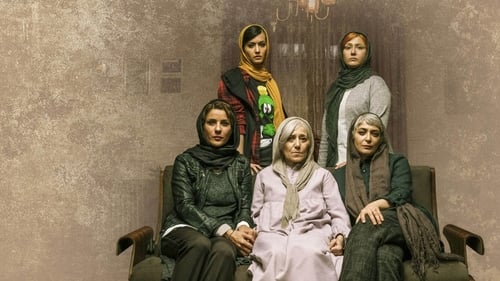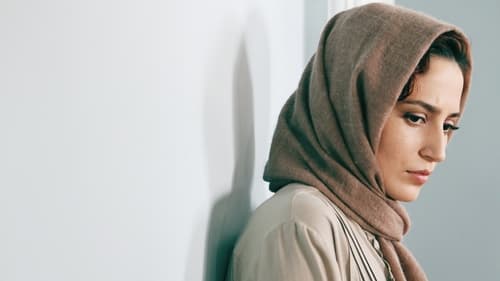Elham Korda
Birth : 1978-12-04, Tehran, Iran
History
Elham Korda is an actress and theatre Director was born in 1978, Tehran, Iran. She started her career with the movie “The Painting Pool” by Maziyar Miri which was a turning point in her professional life. She also starred as an actress in the movie “Being born” by Sepideh abdolvahab which brought her the nomination of Simorgh Award at 34th” Fajr Film Festival “. She also has starred at the stage of theatre in the plays like“Hamhavayi” by Afsaneh Mahiyan. She starred as an actor in the TV series like “ Shahgosh” by Davood Mirbagheri, “ Blue Whale” Fereydoun Jeyrani and “ the Rhinoceros “ By Kiarash Asadzadeh.

When Yasmin was six years old, as her son is now, the family immigrated to Berlin. Now the heroine is forced to return to Iran because of the death of her father. the son suffers from autism, and this greatly complicates the trip. Arriving in Iran, Yasmin, who hardly knew her father, is surprised to discover that he left her all the inheritance. a short and unwanted stay in her father's hometown and meetings with those who knew him make her rethink concepts such as life, death and human nature.

Arghavan
Arghavan is a woman close to middle age. When she and her husband take the pet dog to the vet, if someone has forced the animal to eat a lot of sweets, which is likely to make him blind.

Parisa
After a long time, three sisters come back to their paternal house. They face a caretaker along with their mother struggling with Alzheimer's. But there is no trace of the father who has disappeared in an early morning. A dead body is found, but none of the sisters are going to identify the body due to the hatred rooted in their hearts. There is a dark secret in the family, but no one intends to talk about it.

On the FM wave, there are 48 things happening.

Leila
A free adaptation of the classic William Faulkner novel, AS I LAY DYING follows four siblings - three brothers, accompanying their only sister - as they drive to the south of Iran with their newly-deceased father's body. Their father's will demands that his body be buried in a small, faraway village, a place none of his children have ever heard of.

A divorced couple have to go on a trip for the mental health of their only daughter after three years. During the trip, the truth of their past lives are revealed, facts that have led to their separation. The health of their child hangs in the balance as they continue their confrontations, potentially jeopardising their new relationships and their futures.

After her divorce Mina is in need to financial and emotional supporting. She meets a guy and thinks that this is the man of her dreams. But things are not just as their first seem to be.

Pari and Farhad are a middle-class couple who are both involved in theater and cinema. They love each other and are happy with their son, but suddenly they are faced with Pari's unplanned pregnancy. Farhad insists on an abortion but Pari believes that abortion is inhuman and cannot accept her husband's idea. A baby, bringing the possibility of making their family world even happier, causes serious disruptions in their lives.

A woman in four months of pregnancy doubts the health of her fetus.

An accidental encounter between a man and a woman changes their future.

Amir and Sara are a young couple on their way to Melbourne to continue their studies. However, just a few hours before the departure of their flight, they are unintentionally involved in a tragic event.

Ahmad is a clergy man who has a quiet and lovely life with her wife. However, his life changes when her wife becomes pregnant. Economical pressure causes him to change jobs until he is offered a role in a movie.

Maryam (Negar Javaherian) and Reza (Shahab Hosseini) are different from other people, it's not just a simple difference, but a very big difference. They must try to prove to others they have solved the big difference with the miracle of love ...

Roya is a resourceful young woman who is juggling with loans to pay back a large debt. With her gift of the gab and her determination to fight her way out, she finds herself at the top of a small ponzi scheme that promises to be lucrative, but very soon the mechanism seizes up and a sense of control gives way to anxiety. With a sense of narrative sequencing akin to his senior, Jafar Panahi (The Circle, Blood and Gold), Mahmoud Ghaffari portrays a protagonist hemmed in by a double straightjacket, one where social and gender inequality are inextricably intertwined. His character is neither a heroine nor the passive victim of a crushing system but warrior-like yet evanescent. Arguably, this determination, which draws its energy from despair, can be seen as an obligation incumbent on any filmmaker practising their art in today’s Iran: the obligation to fight up to the point where one’s very absence leaves a void full of meaning.




